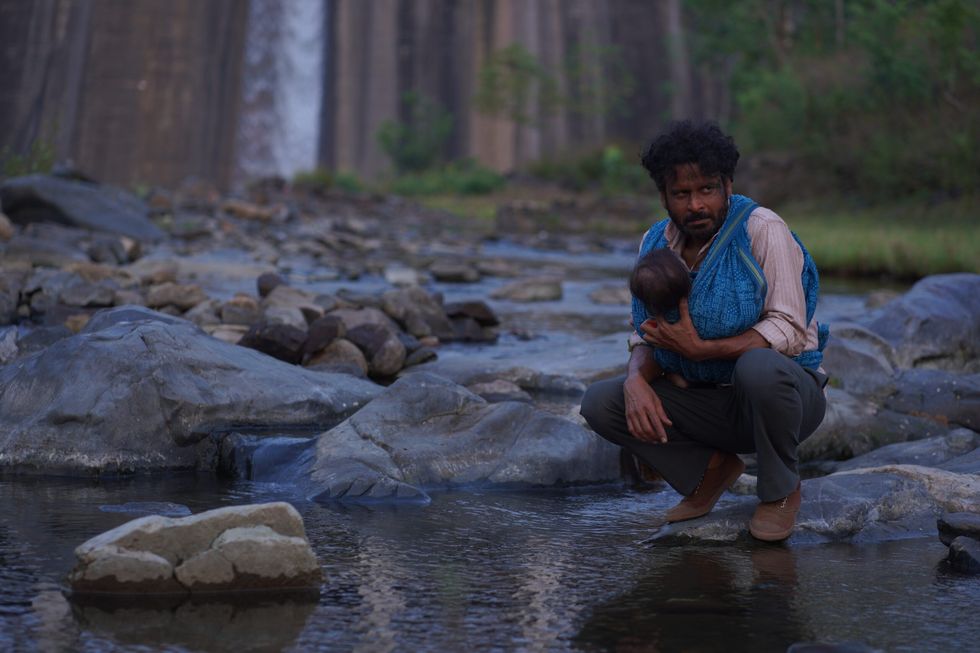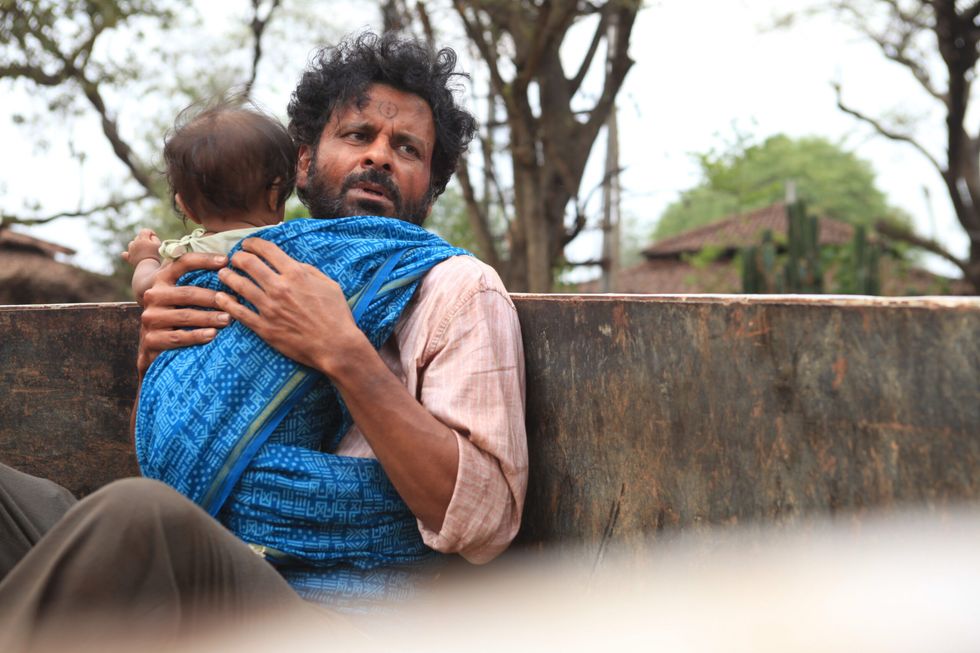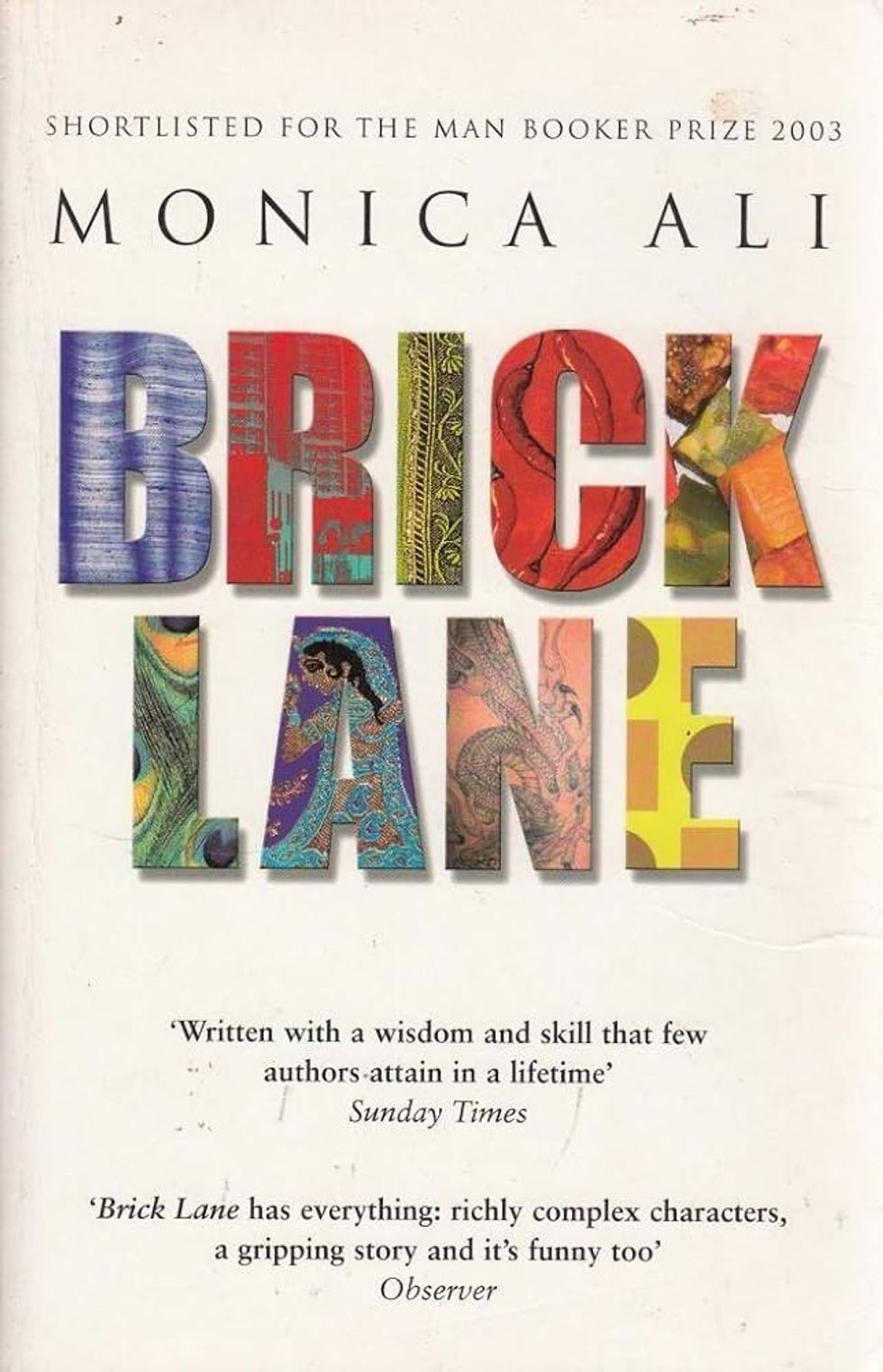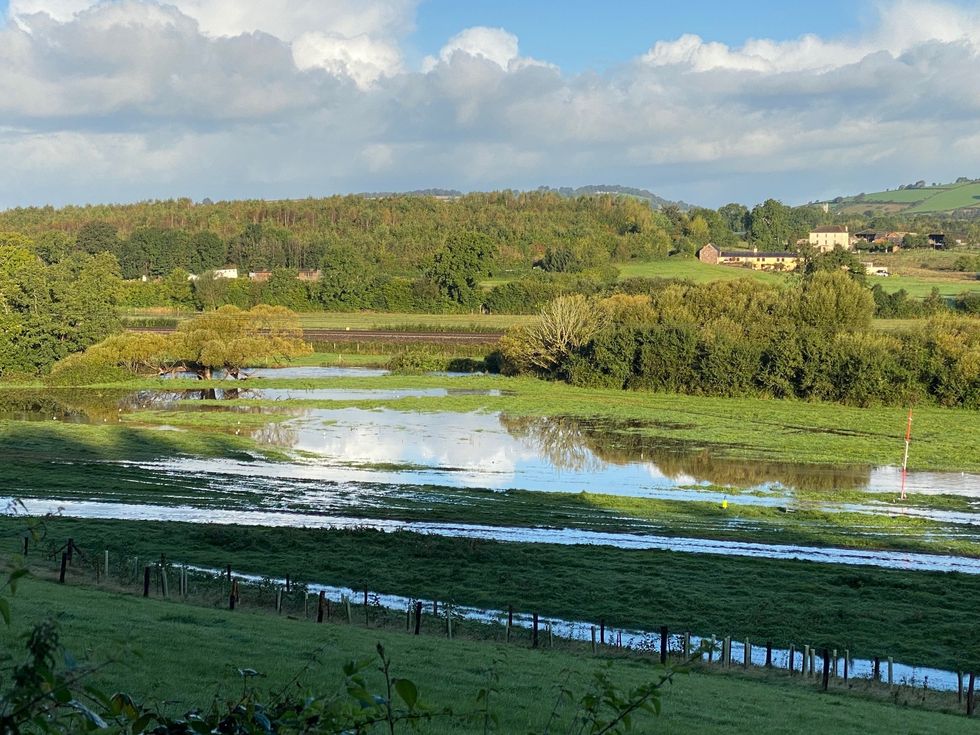DRAMATICALLY different roles have enabled Manoj Bajpayee to deliver dynamic performances in diverse genres.
The incredibly versatile actor has added to his brilliant body of work with new survival thriller Joram, which has amazed audiences at international film festivals and is now in cinemas.
He plays an impoverished man, who goes on the run with his young baby after dark forces from the past conspire against him.
The multi-layered movie combining a thriller element with human drama and socio-political issues has won rave reviews right across the board. The acclaimed actor has teamed up with ace writer-director Devashish Makhija again, after their award-winning drama Bhonsle, for another film that breaks all the rules and delivers something new for audiences.
The actor was feeling confident when Eastern Eye caught up with him to discuss his latest triumph Joram, why Indian cinema needs more films like this and what it was like having a small baby as a co-star.
Are you consciously selecting projects that are so different to each other? Yeah, this has been my effort in the 20-25 years
Yeah, this has been my effort in the 20-25 years since I started getting work. And since the time I got a little sense of freedom in the industry.
You had previously teamed up with the Joram writer-director on critically acclaimed drama Bhonsle. Did you expect that movie to be such a huge award-winning success?
Oh, no, when making an independent film, you think there is only a very select audience for it. So, you don’t expect the film to reach each and everyone in the audience. But the manner it was received completely threw us off. Even the head of the (streaming site) platform was quite surprised as to how well the film was received
What did you like about Bhonsle writer-director Devashish Makhija?
I must say that from the time I read the script, I realised that this is one writer-director who is going to go very long and he will be a force to be reckoned with and today with Joram, after showing at all the big festivals, somewhere I feel that I’m proven true.
I wrote that you and Makhija are a new dream team in Indian cinema. How do you feel about that?
I love it because of all the things that we have done and now Joram is being released for the people. Our chemistry and equation with each other are being talked about. Without any effort, it’s a mutual admiration. Both of us admire one another. When you know what he is capable of, you leave yourself in his hands and this is what I have done a lot throughout.

What did you like about Joram?
Joram has a very unique world that is being presented to the masses. The world, people, problems, the journey of a father and baby daughter, together is not something that has been seen before. And the manner this story unfolds is also something that people are talking about.
What is it like to have a small baby as a main co-star?
You are on tenterhooks most of the time because there is a responsibility on your hand. With this challenging role, you also have a small, fragile three and-a-halfmonth-old baby to take care of and perform with. Many times, my heart skipped a beat. At times I couldn’t afford to completely get into the character when the baby was in my hand. Because when you forget about the baby in your hand, that is the time there was a danger of making the most dangerous mistake of your life.
You always transform yourself visually for a character. How do you decide on the look?
The look, Asjad, is very secondary. You know, losing weight, growing a beard, growing your hair and all of this, is something that can be achieved very easily. But getting into the deeper core of the character and travelling inside the skin is the most difficult part – it is a dark dungeon out there.
Tell us about that?
You have to really take a dive into it. First, you’re scared. But once you’re there in that area, it becomes the journey that has really excited you to become an actor. But the journey inside is not that easy. It takes so much of effort and preparation. Once you’re there, you forget about everything. You’re just being there with the character, trying to understand and explore. And there is nothing else that is crossing your mind.
How are you able to generate such raw emotion every time on screen, nobody is better than you at it?
Thank you very much. First, it’s years of practice. Also, the life experiences and journey of mine, which have not been so rosy or great. These experiences of life come in very handy to you. And yes, there is also the craft and skill one has learned over the years, while doing theatre. Everything works together for you. You can always recall all of those emotions that you have felt or have seen others going through.
If it was me, I’d be in therapy just after one intense film, but you just keep doing it?
(Laughs) You know, Shabana, my wife says that I need therapy all the time.
Is it fair to say that Joram has found the middle ground between artistic and commercial cinema?
You said it so right. That’s just so correct. Beneath that father-daughter, and the world they inhabit, is a thriller. It’s a father and daughter on the run, and the challenges they face, but also a thriller and a story of survival. That combination of a human story and a thriller makes this genre very engaging and interesting.
Have you got used to the fact that everyone always talks about your brilliant performance like they have done with Joram?
I haven’t gotten used to it because every time a performance of mine or a film is about to be released and shown to people, deep inside I’m very curious. I’m not anxious. Actually, I’ve never been anxious. But yes, I have been very curious and wait outside to take the first reaction. I am sometimes a little apprehensive. I prefer to stay back at home and wait for the calls of people from the screening.
Do you think formuladriven Indian cinema needs more films like this that combine a commercial element with something more artistic and intelligent?
Most Indian cinema, be it the Hindi films or any other industry, they are quite mainstream, or box office driven. That’s my concern – that if you’re not making cinema for cinema, and only to make money, then then you are not creating good for cinema. You are doing a disservice to it. Cinema needs to grow and evolve with time. You got to just kind of put a block in it if you’re only treating it as a tool to make loads of money.
Will you be planning a third film with Bhonsle and Joram writer-director Makhija?
Not yet. But I just hope I get an opportunity all over again to work with him.
You’ve had such a glittering career, but what does cinema mean to you today?
Cinema has always been a passion for me and that will always remain. It’s somewhere I feel very comfortable. Just waiting for your next shot, even if it is half an hour, one hour, eight hours, one day, I just keep sitting there in my van and waiting. I don’t mind it because I love cinema so much.
Did you learn anything new while making Joram?
Just working with a baby. I mean, how to act if you have that much responsibility in your hands. You know, taking care of many things and still being in character. This was something very new I learned. Otherwise, what happens is you act and are only within yourself in character, not really caring about anything else.
What keeps you so grounded, despite all the critical acclaim?
Because the realisation is always that nothing lasts forever. That keeps me grounded whether there is success or failure. You always know that it’s not going to last.
Why should we watch Joram?
Because it’s a great film and worth every penny of yours. That is why you should watch Joram. How many films do you know that can boast of this?


















 Beck Theatre’s new programme is the pantomime Sleeping BeautyBeck Theatre
Beck Theatre’s new programme is the pantomime Sleeping BeautyBeck Theatre Omid DjaliliBeck Theatre
Omid DjaliliBeck Theatre Paul ChowdhryBeck Theatre
Paul ChowdhryBeck Theatre San2 SinghBeck Theatre
San2 SinghBeck Theatre

 Her book
Her book
 The newly restored River Culm floodplain at Killerton, Devon
The newly restored River Culm floodplain at Killerton, Devon The black poplar has effectively died out in the wild
The black poplar has effectively died out in the wild